Biden labels Buffalo shooting 'domestic terrorism' after visiting scene
"The ideology of white supremacy has no place in America," Biden said.
Assuming his role as consoler in chief, President Joe Biden traveled to Buffalo, New York, on Tuesday to visit a community in mourning and call out the dangers of white supremacy on the national stage following Saturday's racially-motivated mass shooting at a supermarket that left 10 Black people dead, three wounded and others fearing for their lives.
Biden wanted to meet with victims' families to "try to bring some comfort to the community, particularly to those who lost loved ones" and "grieve with them," White House press secretary Karine Jean-Pierre said Monday.
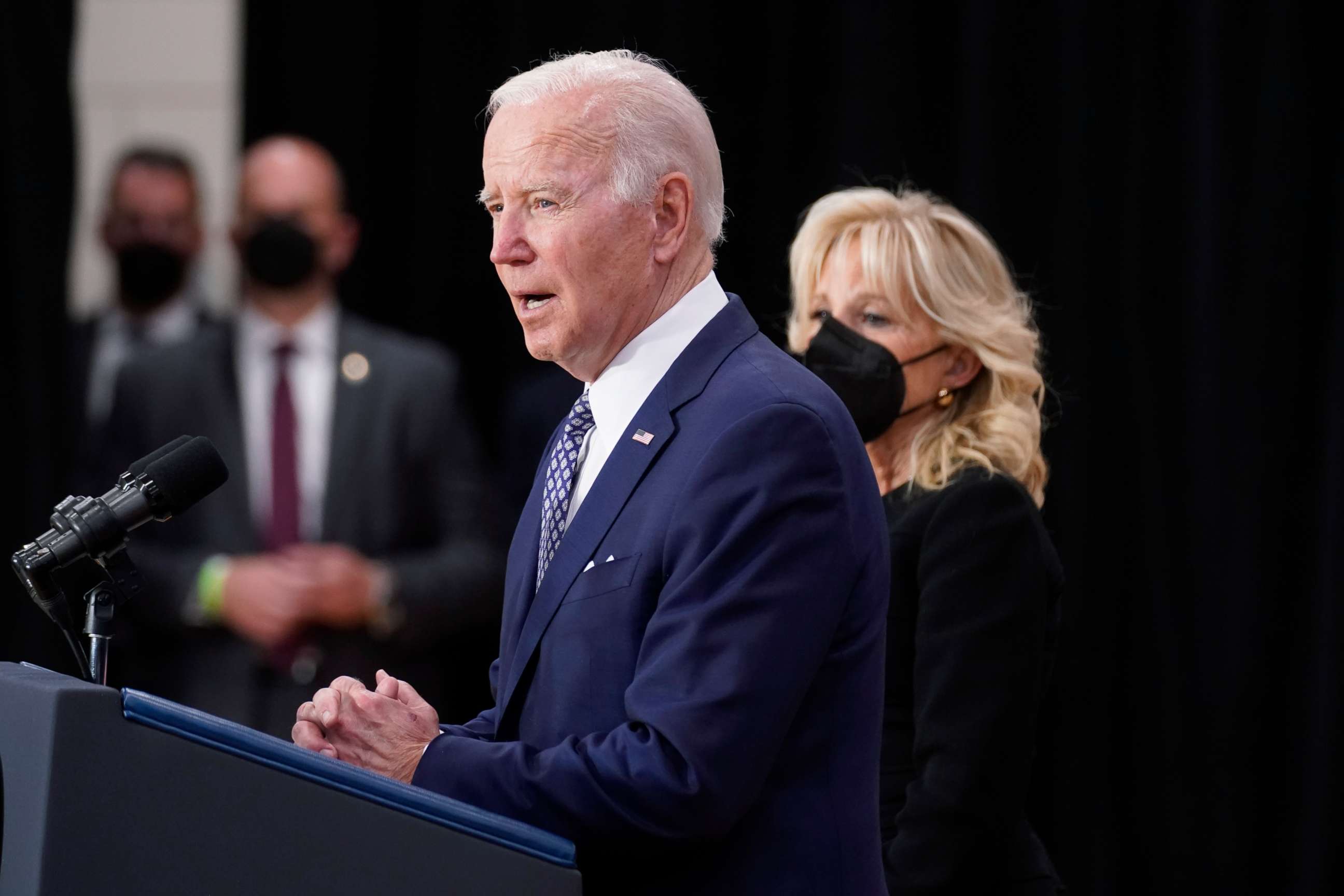
He and first lady Jill Biden visited the Tops market memorial to pay their respects on Tuesday morning, laying flowers. They then met behind closed doors with the families of victims and first responders at a community center. During an afternoon address, Biden called on Americans to reject white supremacy, calling it a "poison" that's "running through our body politic" that has been "allowed to grow and fester in front of our eyes."
"What happened here is simple, straightforward," Biden said. "Terrorism. Domestic terrorism. Violence inflicted in the service of hate. And the vicious thirst for power that defines one group of people as being inherently inferior to any other group," he said.
Alluding to the "great replacement theory" conspiracy, an idea espoused by the alleged shooter and echoed in language used by some Republicans and media figures, Biden called on Americans to "reject the lie" and condemned those "who spread the lie for power, for political gain and for profit."
"We need to say as clearly enforced as we can, that the ideology of white supremacy has no place in America. None! And look, failure for us to not say, failure to say that is going to be complicity. Silence is complicity, it's complicity," Biden said. "We cannot remain silent."
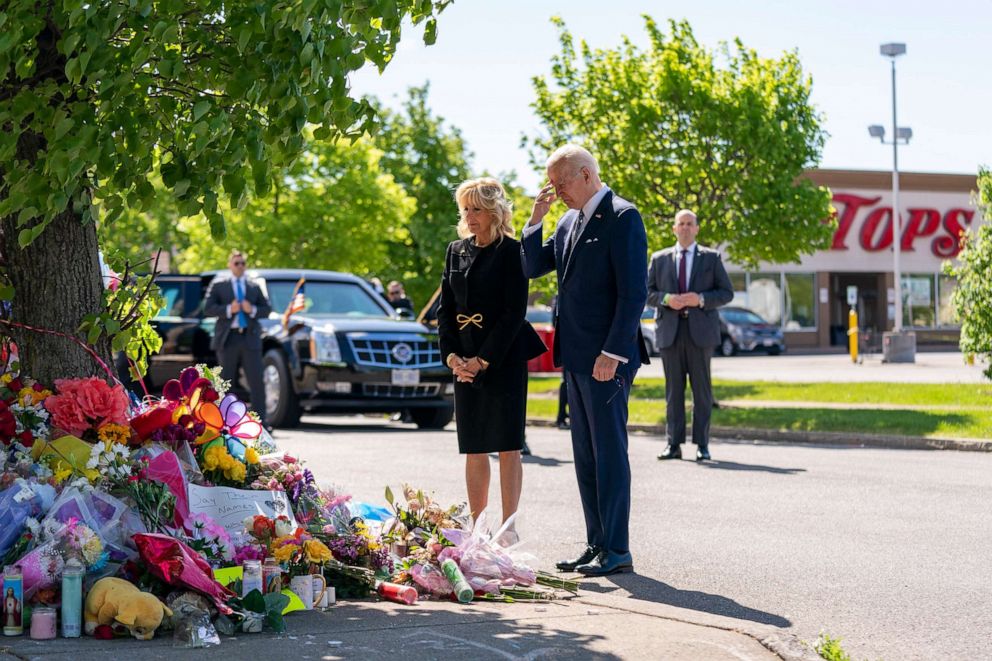
The president also named each victim in the attack and their ages, giving details of their everyday lives before they were suddenly gunned down.
"I know tragedy will come again. It cannot be forever overcome. It cannot be fully understood either. But there are certain things we can do," Biden added.
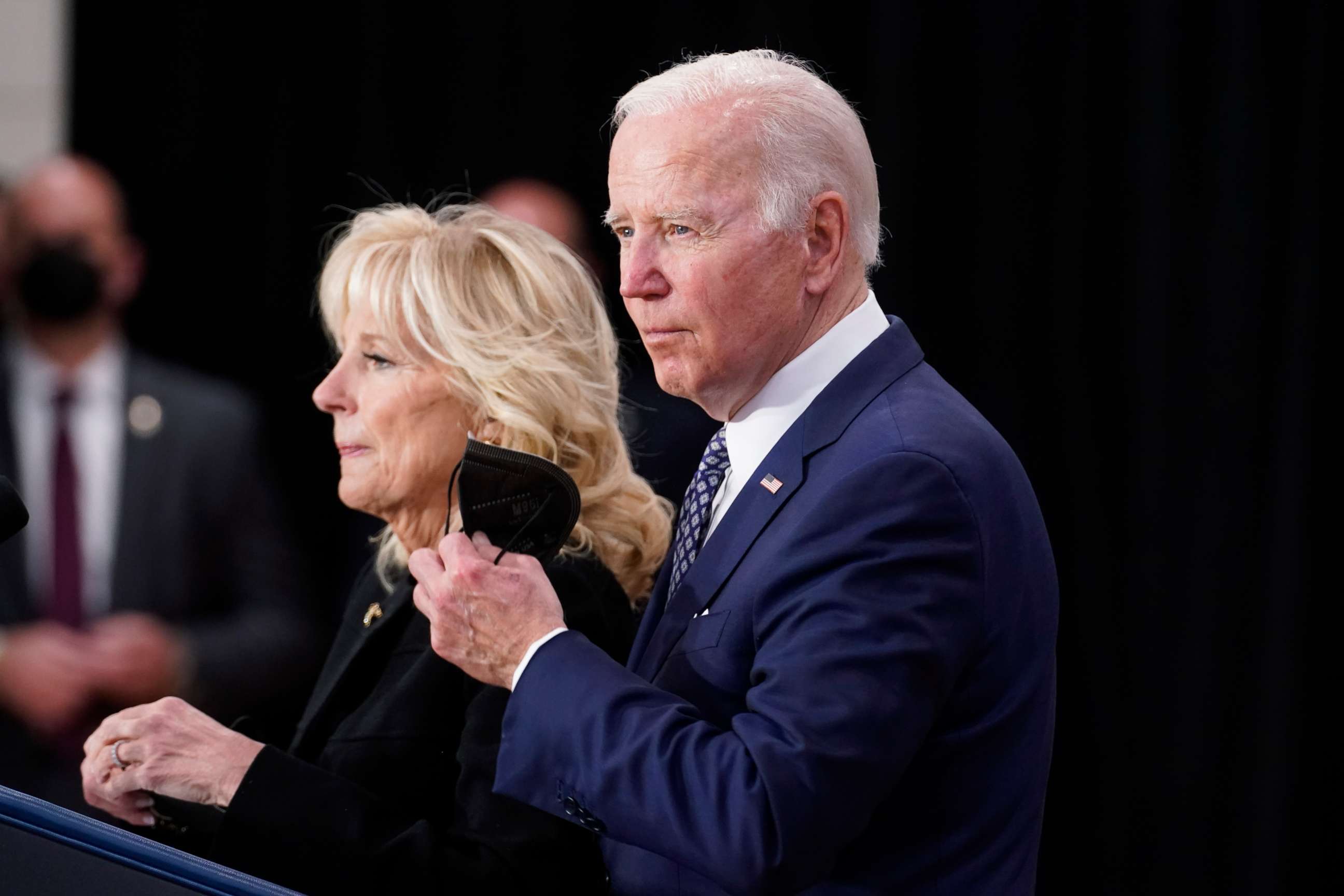
The president called on Congress to pass legislation to "keep assault weapons off our street" and to do more to "prevent people from being radicalized to violence," such as addressing what he called "the relentless exploitation of the Internet to recruit and mobilize terrorism."
"We just need to have the courage to do that, to stand up over the American experiment in which democracy is in danger -- like it hasn't been in my lifetime," he said. "The American experiment in democracy is in danger at this hour. Hate and fear are being given too much oxygen by those who pretend to love America."
"We have to refuse to live in a country where Black people going about a weekly grocery shopping can be gunned down by weapons of war, deployed in a racist cause," he said. "We have to refuse to live in a country where fear and lies are packaged for power and for profit."
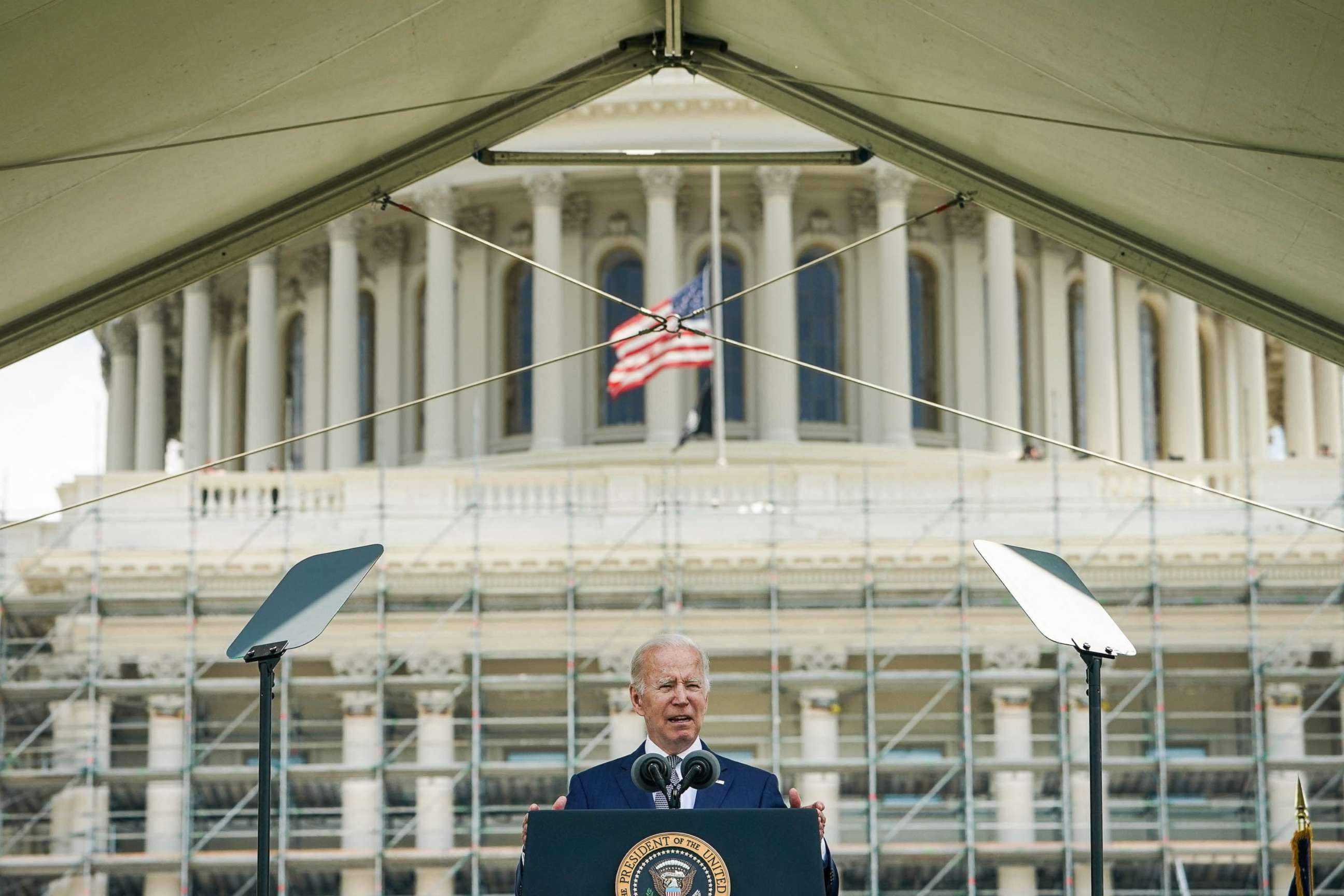
Biden has said in the past that he was compelled to run for office, in part, because of how former President Donald Trump responded to white nationalists marching in Charlottesville, Virginia. He was the first president to directly address white supremacy in his inaugural speech, calling it "domestic terrorism that we must confront" and released the first-ever national strategy to counter domestic terrorism.
Civil rights attorney Ben Crump, representing Ruth Whitfield, an 86-year-old who was among those killed Saturday, had called on the Biden administration to label the shooting an act of domestic terrorism, which the president did Tuesday.
"We can't sugarcoat it, we can't try to explain it away talking about mental illness," Crump said in a press conference with the victims' families on Monday. "This was an act of domestic terrorism perpetrated by a young white supremacist."
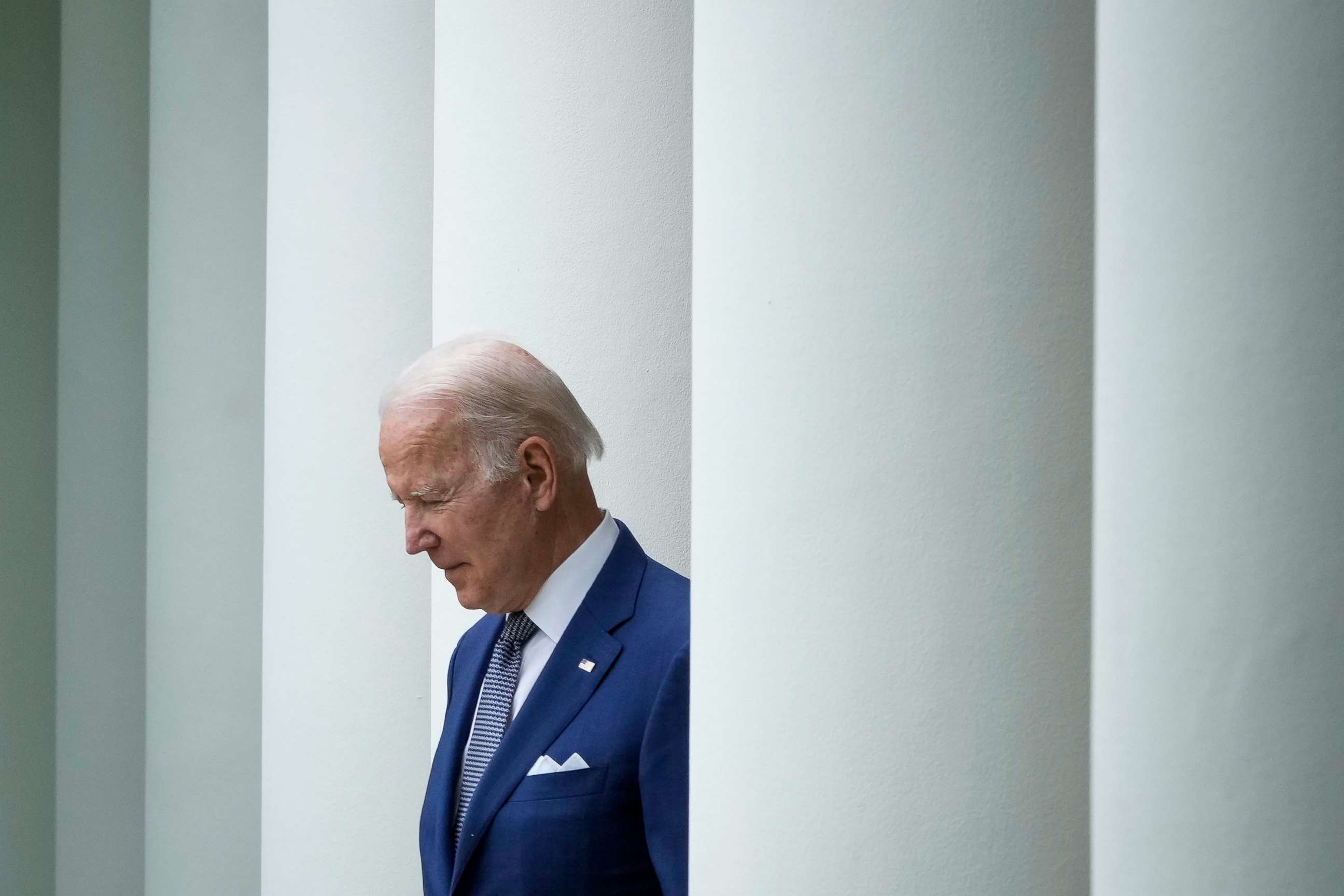
Biden's first in-person comments on the shooting came while speaking at an event on Sunday to honor law enforcement officers killed on duty, where he described the accused gunman as "armed with weapons of war and a hate-filled soul." He also said that he has been receiving updates from his team at the White House, which remains in close contact with the Department of Justice, while it investigates the shooting as both a hate crime and an act of racially-motivated violent extremism.
"As they do, we must all work together to address the hate that remains a stain on the soul of America," Biden said. "Our hearts are heavy once again, but the resolve must never, ever waver."
During a previously scheduled Medal of Valor ceremony at the White House on Monday, Biden also paid tribute to retired Buffalo Police Department officer Aaron Salter, the security guard at the Tops Friendly Market who was killed after engaging the shooter and "gave his life trying to save others," Biden said.
"He actually was able to shoot the assailant twice, but he [the assailant] had a bulletproof vest, and he [Slater] lost his life in the process," Biden added.
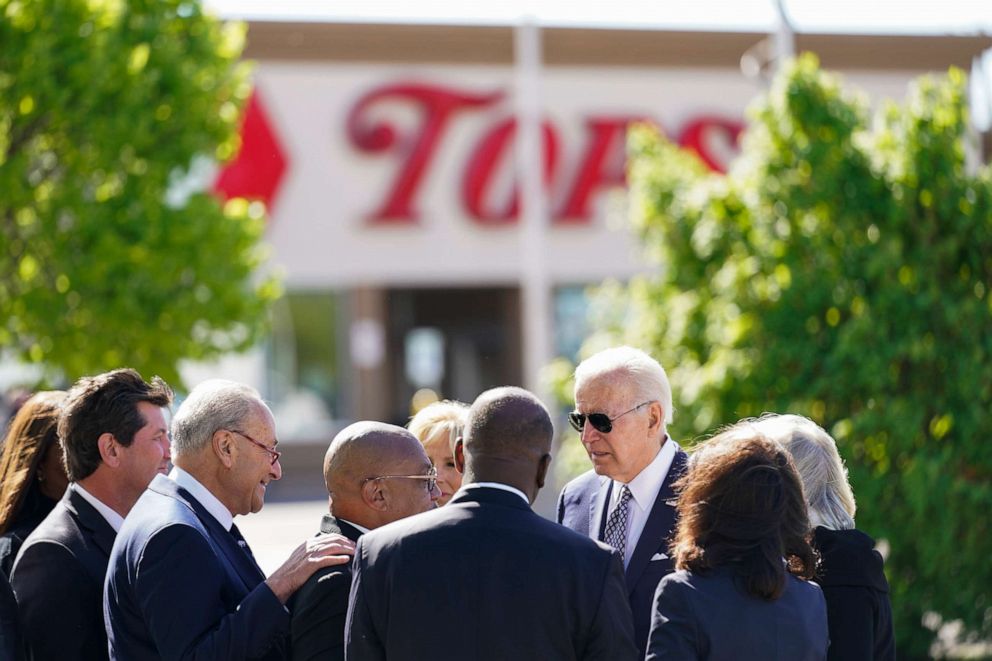
On a somber Monday afternoon, Jean-Pierre -- taking over for former White House press secretary Jen Psaki -- began her first briefing by reading out the names of each victim of the shooting and giving a little description of who they were.
Asked who or what may have influenced the shooter, Jean-Pierre opted, at first, to speak about the Unite the Right rally in Charlottesville in 2017, which saw one counterprotester dead, saying Biden "is determined as he was back then, and he is determined today, to make sure that we fight back against those forces of hate and evil and violence."
When pressed again by ABC News Chief White House Correspondent Cecilia Vega about elected officials who have expressed views echoing those espoused by the alleged gunman, such as Rep. Elise Stefanik, R-N.Y., Jean-Pierre said the administration would call out those who "spew this type of hate" -- but refused to name anyone -- and gave few details about what the White House can do to prevent these kinds of views from becoming more widespread.
"What we're going to continue to do anyone, any one person, right, doesn't matter who they are, who spews this type of hate, hatred, we're going to, we're going to call out we're going to condemn that," she said. "I'm not going to speak or call out any individual names. I'm saying that this is something that we need to call out. And so this is what the president has been doing and will continue to do that."
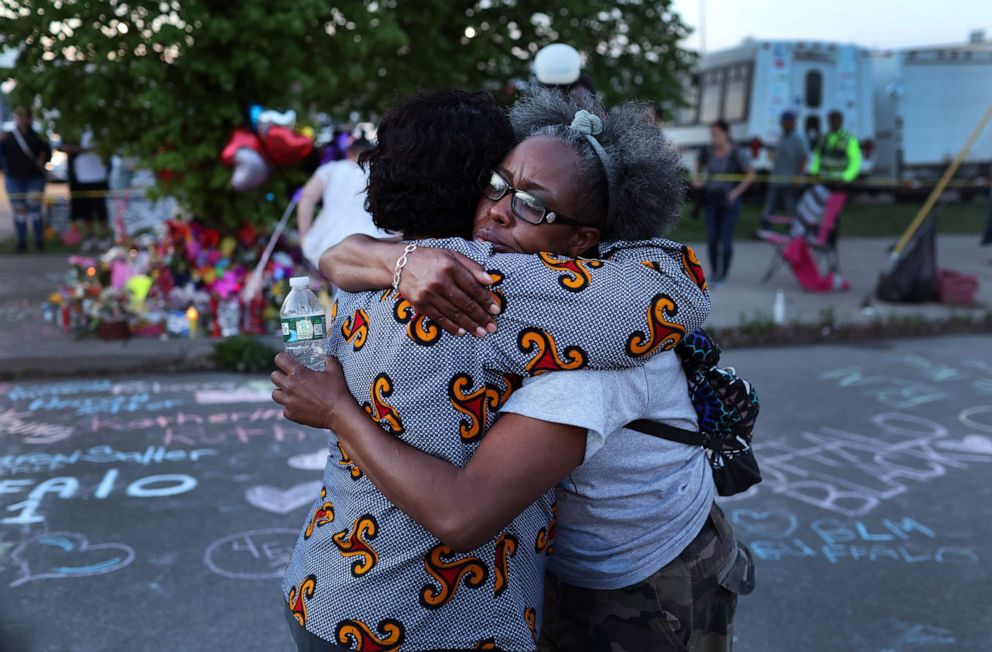
"I'm not going to get into a back and forth on names and who said what," Jean-Pierre added. "We're just saying, if someone does that, if there's an individual that is espousing hate, xenophobia, you know, has, you know, has just white supremacy type of extremism, we need to call that out. And this president has done that."
With renewed calls for gun control from the public, House Speaker Nancy Pelosi told ABC's "This Week" Sunday that Democrats in Congress is "of course trying to do something about gun violence" but noted that efforts to address mass shootings on Capitol Hill have fallen short not in the House but in the Senate, where Republicans have opposed gun control measures, making it impossible for Democrats to advance legislation over the 60-vote threshold in the chamber.
A document obtained by ABC News Monday appears to show how the alleged shooter, Payton Gendron, 18, carefully planned out his attack at least two months before he was arrested at the supermarket on Saturday and charged with first-degree murder. He has pleaded not guilty.
ABC News' Justin Gomez and Armando Garcia contributed to this report.




